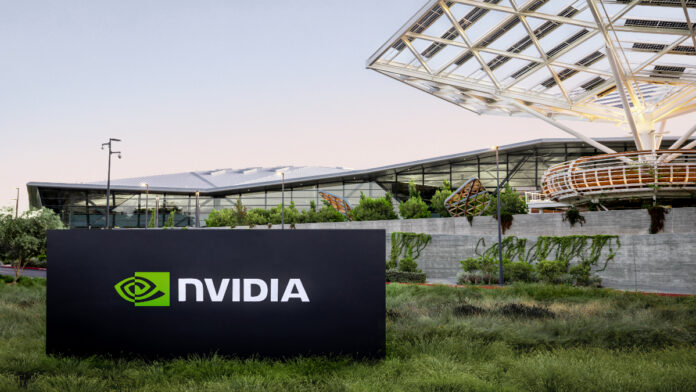The CEO of Nvidia, Jensen Huang, said the Chinese AI market could expand by 50% annually
In sum – what to know:
Blackwell sales to China possible – Jensen Huang said there is a “real possibility” of exporting modified Blackwell AI chips, provided U.S. licensing hurdles are resolved.
China AI market forecasted at $50B – Huang estimates China’s AI market could expand 50% annually, making it the world’s second-largest opportunity for Nvidia.
Geopolitical deals shape revenue – Nvidia struck a deal with the Trump administration on H20 chip exports but awaits official rules on a mandated 15% revenue share.
U.S. AI chipmaker Nvidia CEO Jensen Huang said there is a “real possibility” that the company’s advanced Blackwell processors could be sold in the Chinese market, as he pressed U.S. officials to allow American chipmakers more access to the market.
Speaking on Nvidia’s latest earnings call, Huang noted that China’s AI market could expand by 50% next year, estimating a $50 billion opportunity in 2025. “The opportunity for us to bring Blackwell to the China market is a real possibility,” Huang said. “We just have to keep advocating the importance of American tech companies to be able to lead and win the AI race, and help make the American tech stack the global standard.”
Huang’s remarks follow his visits to the White House in July and August to seek export licenses for Nvidia’s H20 chip, currently restricted by U.S. rules. In August, the Trump administration struck a deal allowing Nvidia to sell H20s in China, provided 15% of revenue goes to the U.S. government.
Nvidia reported Q2 revenue of $54 billion, up 56% year over year, despite not selling any H20 chips in China. The company offloaded $180 million in H20 inventory to another customer, generating $650 million in sales. CFO Colette Kress said Nvidia expects no H20 sales in the October quarter but could see $2–5 billion in revenue depending on political conditions.
While Nvidia has secured some licenses, the U.S. government has not yet issued formal regulations on how it will collect its share of Chinese H20 sales. Kress noted, “U.S Government officials have expressed an expectation that the Government will receive 15% of the revenue generated from licensed H20 sales, but to date, the Government has not published a regulation codifying such [a] requirement.”
Huang argued Chinese developers should use Nvidia’s chips rather than be forced to rely on local alternatives, which could accelerate China’s domestic semiconductor push. “The China market I’ve estimated to be about $50 billion of opportunity for us this year, if we were able to address it with competitive products,” Huang said. “And if it’s $50 billion this year, you would expect it to grow, say, 50% per year.”
Recent reports stated that Nvidia was reportedly preparing a new AI chip for the Chinese market that will outperform its H20 model. Tentatively named B30A, the chip will feature a single-die design, meaning all major components will be integrated onto one piece of silicon. It is expected to provide about half the computing power of Nvidia’s dual-die Blackwell Ultra GPUs, according to Reuters.
The development follows reports that Chinese authorities have discouraged Chinese companies from deploying the H20 chip, particularly in government and security-related projects. Chinese authorities also reportedly instructed large firms such as Alibaba, ByteDance and Tencent to pause H20 purchases while a national security review is underway.
China is requiring its data centers to adopt more domestically produced chips, underscoring Beijing’s intention to reduce dependence on foreign semiconductors, according to a report by the South China Morning Post.
State-owned computing hubs in China have been instructed to ensure that over half of their chips come from domestic manufacturers.

